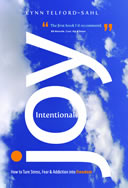Women - Put Your Big Girl Money Pants On!
 Friday, September 23, 2011 at 11:14AM
Friday, September 23, 2011 at 11:14AM  9 Comments
9 Comments Do you stick your head in the sand when it comes to your money problems? It's a common tendency. We think we can make something go away if we don't think about it. This is magical thinking which is how children operate. It's sad to say that sometimes we grown ups are so afraid of our financial circumstances we treat our money like a child would. I get it - I have been there done that. But, it's time to put your big girl money pants on and look at exactly what's happening with your financial situation.
we treat our money like a child would. I get it - I have been there done that. But, it's time to put your big girl money pants on and look at exactly what's happening with your financial situation.
First, face the fact that your money problems will not get any better until you start dealing with them. Second, look at exactly what your bills are and your income. Then define your options. For example, a woman I spoke with this week has overwhelming credit card debt - not unusual these days. I advised her to see a bankruptcy attorney to get advice about whether filing is in her best interest. Another women I spoke with is just barely putting food on the table and she has teenagers that want new clothes. Understandable, but.... Teenagers can be part of their own solution. Don't give them all the gory financial details but let them know there isn't money for extras and if they want new clothes they can babysit, (I printed out flyers and distributed them in my neighborhood when I was 15), or yes, even work at a fast food restaurant.
Women are smart, creative and full of incredible potential. If you know of a woman that's really good with her money, ask her to give you some mentoring help or support. Read to increase your awareness about how you feel about money, what your behavior patterns and beliefs are that support or limit you, and to know how to manage your money. Books I recommend include Suze Orman's Women & Money, Lynne Twist's, The Soul of Money, Deborah Price's Money Magic and Chellie Campbell's The Wealthy Spirit. We women have got to take care of ourselves and taking control of our money is an important way to put those big girl pants on!!
manage your money. Books I recommend include Suze Orman's Women & Money, Lynne Twist's, The Soul of Money, Deborah Price's Money Magic and Chellie Campbell's The Wealthy Spirit. We women have got to take care of ourselves and taking control of our money is an important way to put those big girl pants on!!
 Lynn Telford-Sahl tagged
Lynn Telford-Sahl tagged  bankruptcy,
bankruptcy,  credit help,
credit help,  ffinancial stress,
ffinancial stress,  financial crisis,
financial crisis,  financial freedom,
financial freedom,  financial help,
financial help,  financial problems,
financial problems,  modesto credit help,
modesto credit help,  money freedom,
money freedom,  stanislaus county financial help,
stanislaus county financial help,  women and money,
women and money,  women and power
women and power











